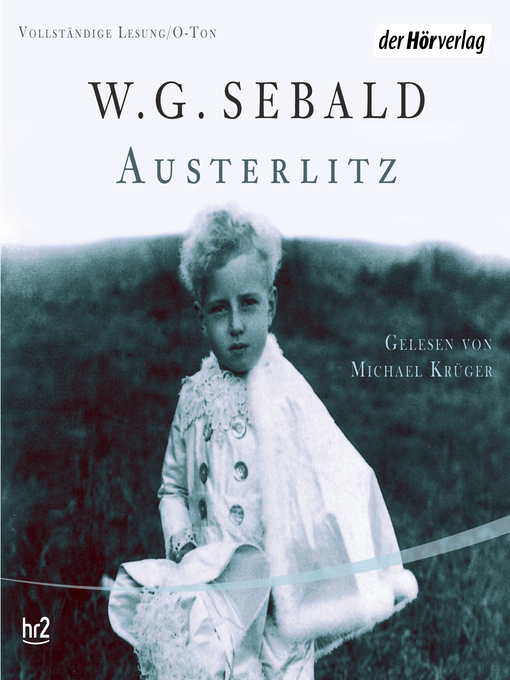Antwerpen, Hauptbahnhof, Salle des pas perdus im Jahr 1967. Dem Erzähler fällt ein Mann auf, der eingehend die Architektur des Gebäudes betrachtet. Die beiden Herren kommen ins Gespräch und verabreden sich für den nächsten Tag. Aus dem zufälligen Zusammentreffen wird ein über 30 Jahre andauerndes Gespräch an verschiedensten Orten Europas. Zwischen London, Paris und Prag erzählt der Kunsthistoriker Austerlitz seine Geschichte: die Geschichte einer verlorenen Kindheit, die sich bruchstückhaft und nach und nach zu der eines Überlebenden einer der schlimmsten Katastrophen der Menschheit zusammensetzt.
Gelesen von Michael Krüger, mit einem Originalton des Autors.
(Laufzeit: 11h 19)

